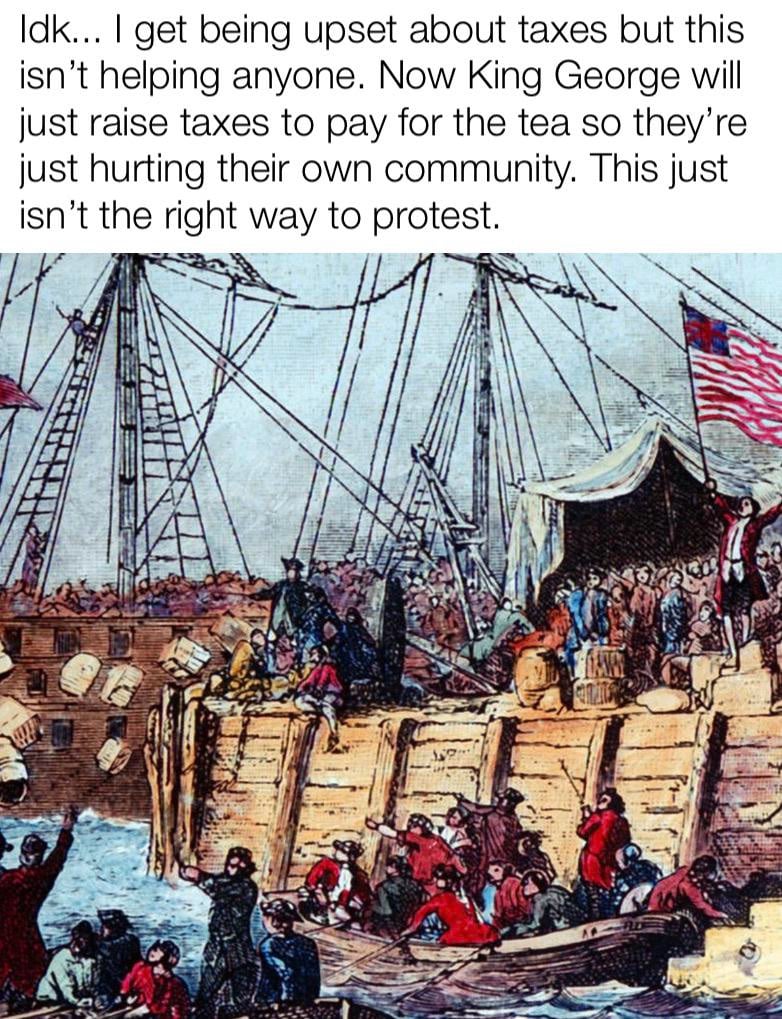Gonna be honest, if we take a look at the Boston Tea Party from an objective point of view, it was a dumb idea with terrible repercussions for Massachusetts. Great Britain shut down Boston Harbour, disbanded the civil government and put Massachusetts into martial law. If you're gonna rebel, then rebel instead of doing this halfway shit that only makes the enemy aware of your intentions.
I know I'm going to get downvoted because I'm attacking an American founding myth, but really—what did the Boston Tea Party really accomplish?

